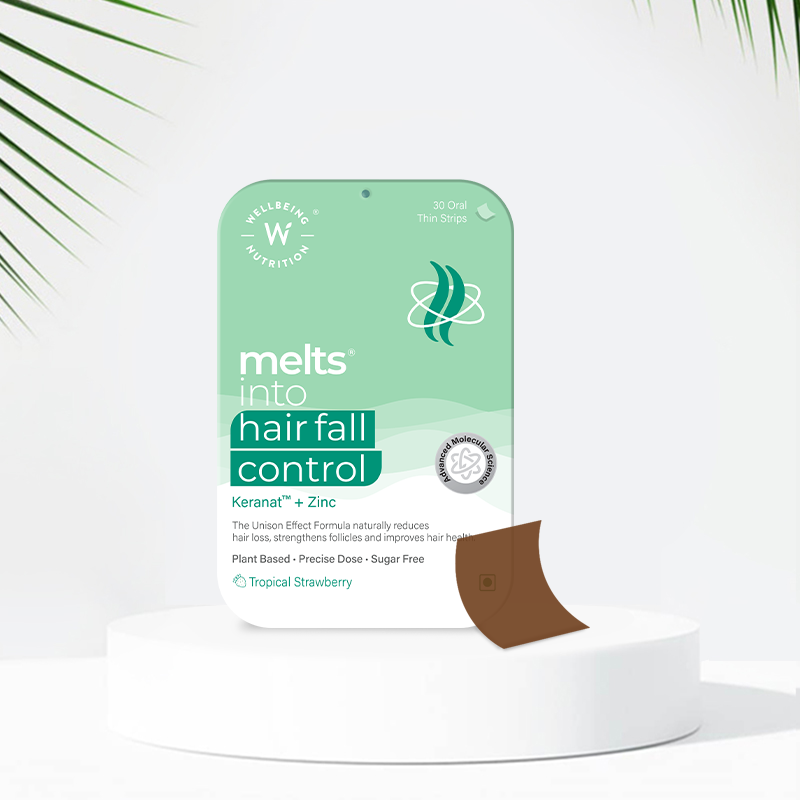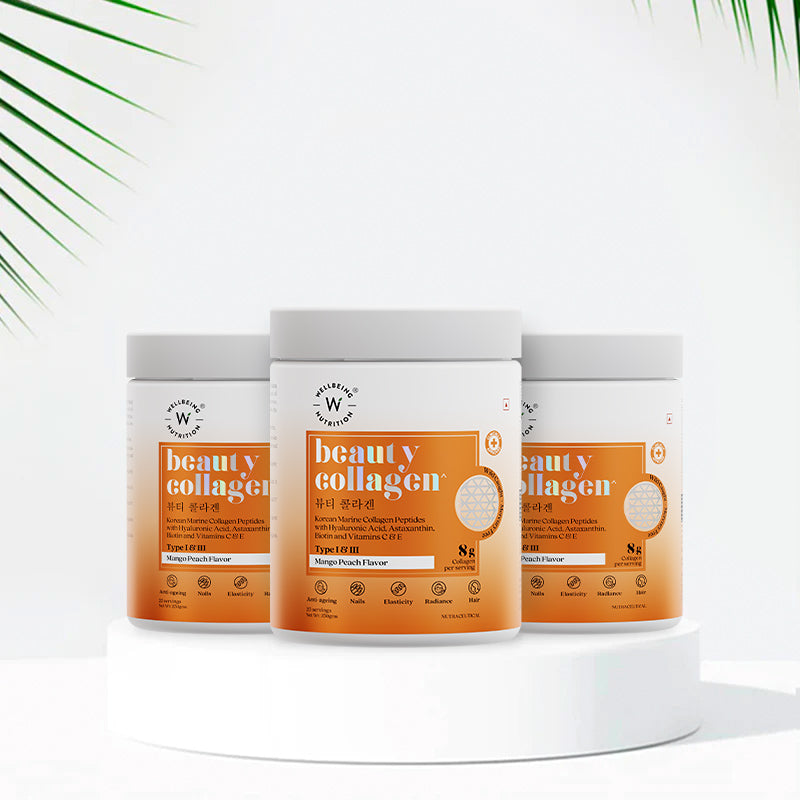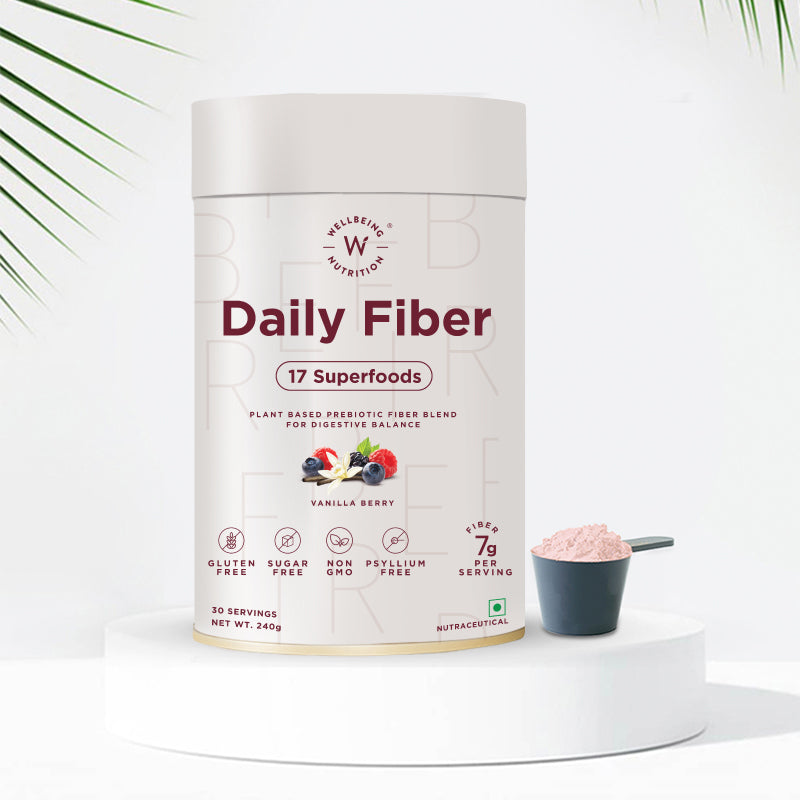Vitamin B12: Understanding The Importance, Deficiencies, and Natural Sources

Most of us are vitamin deficient in some way. The most common ones you might have heard of are vitamin D and B12 deficiency. These deficiencies are usually the result of an unhealthy diet. Vitamin B12 deficiencies are more common in vegetarians and vegans since meat, fish, and eggs are the richest sources of vitamin B12. Most older adults will have a vitamin B12 deficiency (poor absorption); however, many people younger than 60 have B12 deficiencies as well. But why do you get these deficiencies? Is B12 deficiency something you should be worrying about? Is there a safe way to fight deficiencies without eating meat? We have answers to these and many more questions related to this vitamin and the benefits of vitamin B12 supplements in this guide. Let's get started.
What is Vitamin B12?
Vitamin B12, or cobalamin, is an essential vitamin that plays a vital role in maintaining nerve tissue health, cognitive functions, and the production of red blood cells.
Unfortunately, B12 cannot be produced in the body like vitamin D and K, so the only way to ensure sufficient B12 is by eating foods rich in B12 or taking vitamin B12 supplements.
When you consume B12-rich foods, for example, meat, a protein called R-factor secreted by the salivary glands binds to the B12 molecule and carries it to the stomach. The parietal cells of the stomach secrete a glycoprotein called intrinsic factor, which takes B12 from the R-factor and carries it to the last part of your intestine, called the ileum, for absorption of B12. This absorbed B12 will circulate throughout the body to carry out its essential functions. This is the basic journey of B12 in a healthy person. When this process is not carried out properly, usually due to a lack of intrinsic factor that helps with absorption, it leads to a B12 deficiency.
Is Vitamin B12 related to Kidney Function?
Although there hasn't been much in-depth research on the connection between vitamin B12 and kidney function, it is believed that vitamin B12 does play a part in healthy kidney function. Since vitamin B12 is a water-soluble vitamin, the kidney does its job of removing extra B12. A high level of B12 in your body could indicate kidney illness. This means that the kidney isn’t able to remove all of the excess B12 from the body. A simple creatinine test could help determine if your kidney is efficiently filtering out waste and excess products. The test is either done by collecting samples of your blood or urine.
Another indirect link between B12 and the kidney is seen in Hemodialysis- a form of treatment used for kidney failure. These patients are compelled to modify their diet, and foods high in B vitamins are advised by medical professionals.
Thus, vitamin B12 is related to the kidneys.
What Are Normal And High Levels Of Vitamin B12?
For a healthy individual, a vitamin B12 level above 200 pg/mL is considered normal. 200–300 pg/mL is borderline, which means you are on the verge of becoming vitamin B12 deficient. Anything below 200 pg/mL is a deficiency. For adults, a vitamin B12 level above 300 pg/mL is an ideal level. A simple blood test could give you details on how much B12 your body has.
What About Vitamin B12 Overdose?
The excess B12 is stored in the liver to be used when your body needs it or flushed out by the kidneys. Hence, an overdose is unlikely to happen. Having said that, we insist that you keep checking your B12 levels from time to time and consult your doctor for appropriate guidance.
Your liver has B12 reservoirs that can last up to 3 years. So if you don’t replenish your vitamin B12 level within 3 years, your body will use up all the stored B12 and become B12 deficient. So if you have been vegan for more than 3 years without taking any vitamin B12 supplements, there are chances that you might lack vitamin B12.
Here’s How You Can Tell If You Are Vitamin B12 Deficient:
1. Fatigue
One of the initial symptoms of vitamin B12 deficiency is feeling tired. Lack of vitamin B12 and folic acid causes your bone marrow to produce red blood cells that are bigger.
Megaloblastic anemia is the name of this kind of blood condition. Vitamin B9 deficiency is also an influencing factor in megaloblastic anemia, along with B12.
These larger blood cells are incapable of performing the RBCs' crucial tasks, including delivering oxygen to the body. You experience fatigue when your body doesn't have enough energy, and oxygen is needed to break down meals and create energy.
2. Pale Skin
Vitamin B12 plays a vital role in the production of cells. Hence, if you have low levels of vitamin B12 in your body, you’ll lack healthy red blood cells. This could cause your skin to look pale.
Another reason could be that you have jaundice. Jaundice that persists for a long time may be a sign of vitamin B12 insufficiency caused by inefficient production of red blood cells.
3. Headaches
Vitamin B12 deficiency affects the functioning of nerve cells as well; hence, headaches are bound to happen. Moreover, lower vitamin B12 levels can be the reason behind your migraines. Although there aren’t many scientific studies that support this statement, a study revealed that patients who have migraines also have low B12 levels.
4. A Sensation Of Pins And Needles
Since vitamin B12 affects the nervous system, the absence of it can cause nerve damage, causing the pins and needles sensation.
5. Mouth Ulcers
Vitamin inadequacies are to blame for the majority of issues with the skin and exterior layers of the human body, including places like the inside of the mouth. You may have mouth ulcers for a variety of reasons, including a vitamin B12 deficiency. According to numerous studies, vitamin B12 is an effective treatment for mouth ulcers.
6. Impaired Vision
Vitamin B12 might impact the optical nerve, affecting your vision.
Who Is At Risk Of Having A B12 Deficiency?
Here are some instances that might increase the chances of you developing a B12 deficiency.
-
Individuals Over The Age Of 50
In individuals over the age of 50, all organs start underperforming. The stomach is a crucial organ that helps make the B12 molecules suitable for your body to absorb. But as we age, our stomach tends to produce less stomach acid, thus affecting the absorption of B12 into the body.
-
Medical Conditions
Remember when we discussed intrinsic factors? These are glycoproteins that are necessary for B12’s absorption. At times, your immune system identifies these glycoproteins as a threat to your body and starts building antibodies to eliminate them. This condition is called pernicious anemia, and it affects the absorption rate of B12. Additionally, Crohn’s disease, Celiac disease, and gastric bypass surgery might also affect the absorption rate, thus contributing to the B12 deficiency.
-
Excessive Medicines
Consuming certain medicines for too long can hinder the normal absorption of B12. These drugs include antacids, antibiotics, anti-seizure medications, chemotherapy drugs, diabetes-lowering drugs, etc.
-
Vegans and Vegetarians
We aren’t born with B12. In the fetal stage, our mother provides us with B12; after birth, we get it from her breast milk. Later on, we replenish our B12 reservoir with food. So not consuming foods rich in B12 can cause deficiencies. For non-vegetarians, it's easy to meet the B12 requirement; however, those who don’t eat meat, fish, eggs, or milk are at a higher risk of developing a B12 deficiency. If you have been indulging in a vegan diet for more than 3 years, you are most likely to be B12 deficient.
-
Infants of Vegan Women
Infants get all the nutrition they need from breast milk. Since there aren’t a lot of vegan sources of vitamin b12 with regard to food, the mother could be B12 deficient or have low B12 reserves. This could mean that the infant would most likely be devoid of enough B12. Having a B12 deficiency in the early stages of life, when the body undergoes several developmental changes, can be very harmful. It can affect their cognitive development and physical development, and they might have blood-related diseases like anemia.
Luckily, there are ways to replenish your B12 level, and we will learn about them in the next segment.
How Can You Make Sure You're Getting Enough Vitamin B12?
Replenishing vitamin B12 levels is easier than you think. Keep reading to learn more.
1. What you should eat
Here's what you should eat if you are focusing on increasing your B12 levels.
- For non-vegetarians
- Lamb liver and kidney
- Clams
- Sardines
- Salmon
- Tuna
- Trout
- Eggs
- For Vegetarians
- Milk
- Fortified milk
- Yogurt
- Fortified cereals
- Cheese
- For Vegans
- Nori
- Fortified soy milk or cashew milk
- Fortified natural yeast
- Fortified tofu
2. What to avoid
Aim to limit your alcohol consumption. It makes no sense to consume alcohol while making efforts to restore B12 levels since alcohol will prevent B12 from being absorbed. Additionally, it can deplete your B12 reserves.
3. Consume Vitamin B12 supplements
If you are looking for more accessible methods to fulfil your B12 requirements, you can use vitamin B12 supplements. They come in the form of capsules and vitamin B12 strips that give just the right amount of vitamin B12 you need in a day in an easily absorbable form. Best of all, there are also vegan b12 supplements that are perfect for vegetarians and vegans.
4. Medical interventions
Medical treatments are used for severe B12 deficiencies that occur due to malabsorption. Usually, an injection is recommended every 2–3 months to correct the vitamin B12 deficiency. Such treatments are employed when restoring B12 levels with supplements, and food is challenging.
5. Improve absorption
Only filling your body with B12 is not enough; your body should be capable of absorbing all that B12 effectively. To improve absorption, you should work on your gut health and strengthen it. Additional supplements with B12 and folate can help you improve your absorption capacity.
What are Vegan Vitamin B12 supplements?
Most commonly, B12 is derived from non-vegetarian sources, making it difficult for vegetarians and vegans to consume it. Vegan B12 supplements are developed without using any non-veg sources, and they are as effective as any other supplements. B12 supplements with folate are even better, as they provide the vitamin and enhance absorption capacity. If you have issues swallowing capsules, there are vitamin B12 strips that are enriched with ingredients like BacoMind®️, which is a patented, clinically tested, "memory and cognition-enhancing" standardized phytochemical composition that contains nine different bioactive ingredients derived from Bacopa monnieri.
Wrapping Up
Vitamin B12 holds a lot of importance in our body, and that is mostly because it affects the nervous system and cannot be produced in the body. Most vegetarians and vegans might face B12 deficiency. However, a deficiency could also be caused by poor absorption. B12 deficiency can be easily recovered by taking supplements for a recommended period or working on your gut to improve absorption. This post thoroughly discussed vitamin B12’s importance, deficiencies, and treatments. We hope all your queries related to B12 were answered; if not, do check the FAQs below or feel free to ask your queries in the comments to request an answer from our experts.
FAQs
What is vitamin B12 good for?
Red blood cell synthesis, nerve cells, and DNA are all impacted by vitamin B12. B12 is often recommended if you have tingling or numbness in any part of your body. Additionally, it works exceptionally well for weariness, oral ulcers, and pale skin. Since it affects the nervous system, it can be used to treat various issues brought on by nerve damage, including vision impairment.
What foods contain the most B12?
Beef liver, sardines, salmon, lamb, nutritional yeast, fortified cereal
What happens if your vitamin B12 level is low?
Low levels of vitamin B12 impact the creation of healthy red blood cells, which in turn impacts the amount of oxygen transported by the blood, leaving you fatigued and lacking sufficient energy. Inhibiting the production of healthy red blood cells also makes you look paler and causes megaloblastic anemia. It can also affect your nervous system, leading to nerve damage.
Is vitamin B12 good to take daily?
We all need a specific amount of each micronutrient daily to ensure all bodily functions are running smoothly and your body performs perfectly. Since B12 is not stored in the body, you should have B12 every day to ensure proper B12 levels. You need about 2.4 micrograms of B12 every day (for pregnant or lactating women, check with a doctor before taking any vitamins). But figuring out the quantity of B12 in the food is difficult, so many people use supplements. There are vegan B12 strips that contain the right amount of B12 you need for the day and are made with nanotechnology, which ensures maximum absorption.
Does B12 help sleep?
It does, indeed. Vitamin B12 is crucial for regulating sleep-wake cycles because it increases melatonin production in the body. Additional Higher B12 levels have been associated with a lower risk of depression.
What vitamins can be hard on the kidneys?
Vitamins like A, D, E, and K are fat-soluble and can be hard on the kidneys. Water-soluble vitamins like C, B12, B9, etc. are unlikely to cause toxicity or any side effects.
How does vitamin B12 intake influence kidney function?
B12, in general, is needed by all body organs for functioning since it controls the nervous system. B12 may not be a highly influencing factor for kidney function, but it is undoubtedly important when treating kidney diseases. All individuals with renal illness are advised to take vitamin B12 because it is water-soluble. Additionally, most people with chronic liver disease also have hyperhomocysteinemia, which is a sign of vitamin B deficiency and necessitates the use of B12 and B9 supplements.
Which vitamins do I need to avoid if I have kidney disease?
Fat-soluble vitamins are often avoided if your kidneys are weak unless your doctor decides otherwise. Hence, many water-soluble vitamins, like B1, B2, B6, B12, folic acid, etc., are used.
Reference
https://www.ncbi.nlm.nih.gov/books/NBK441923/
https://www.ncbi.nlm.nih.gov/books/NBK537254/
https://pubmed.ncbi.nlm.nih.gov/31471907/
https://www.sciencedirect.com/science/article/abs/pii/S1524904214001994
- Choosing a selection results in a full page refresh.
- Press the space key then arrow keys to make a selection.

Talk to an Expert












